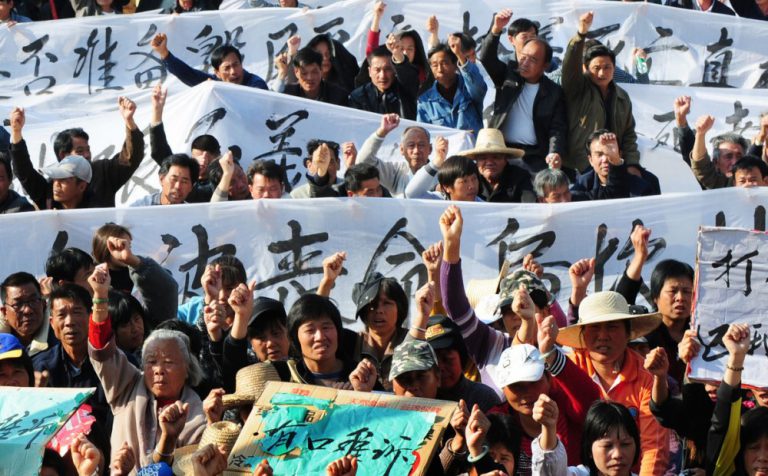China is exceedingly fragile… concerned with domestic challenges.
Professor Steve Hess researches popular protest in China at the University of Bridgeport in Connecticut.
Question:
What is the international media missing about China?
Answer:
The political system in China is exceedingly fragile and the national leadership is overwhelmingly concerned with domestic challenges.
Therefore, when the state takes particular actions, these are usually in response to internal concerns, protests and strikes within Han China or elite competition within the party.
The international media depicts China as a place dominated by a totalitarian all-powerful regime, where the people fear the state. In reality, the actions taken by the state are generally driven by a fear of the people and the continual threat of internal instability.
Q: Is China becoming more or less democratic?
A: There have been some important changes in the way in which China’s existing political functions have operated on a day-to-day basis.
First, the ideological dogmatism, mass campaigning and political fervor of the Maoist period has been replaced with pragmatism, gradual reform, and a focus on modernization in the Deng and post-Deng period since the 1970s.
Second, the central leadership has delegated more power to local governments and increasingly specialized courts, people’s congresses, and bureaucratic agencies.
Third, citizens have been provided with channels to express their views in the form of petitions, protests and local level elections. Petitions are legal, but citizens have found that by (illegally) gathering large groups to present petitions or otherwise demonstrating, they can more effectively win concessions from officials.
Local level elections struggle with corruption and limited competition – candidates are most often both Chinese Communist Party members and often there is only one candidate who stands for election. Elections only take place at the local level, meaning officials who stand to public scrutiny are at the very lowest level of government.
Q: What makes your insight unique?
A: I lived in Southwestern China (Chongqing) for two years with the Peace Corps (2006-2008), developing firsthand knowledge and experience with Chinese society.
As an academic I have developed a research agenda focused on the popular challenges to the state within China, looking at ethnic protests, labor protests and the everyday forms of resistance within the country.
Prof. Steve Hess is an Expert In:
Chinese politics
Minority politics in China
Social movements
(click above links to see related experts as well)

